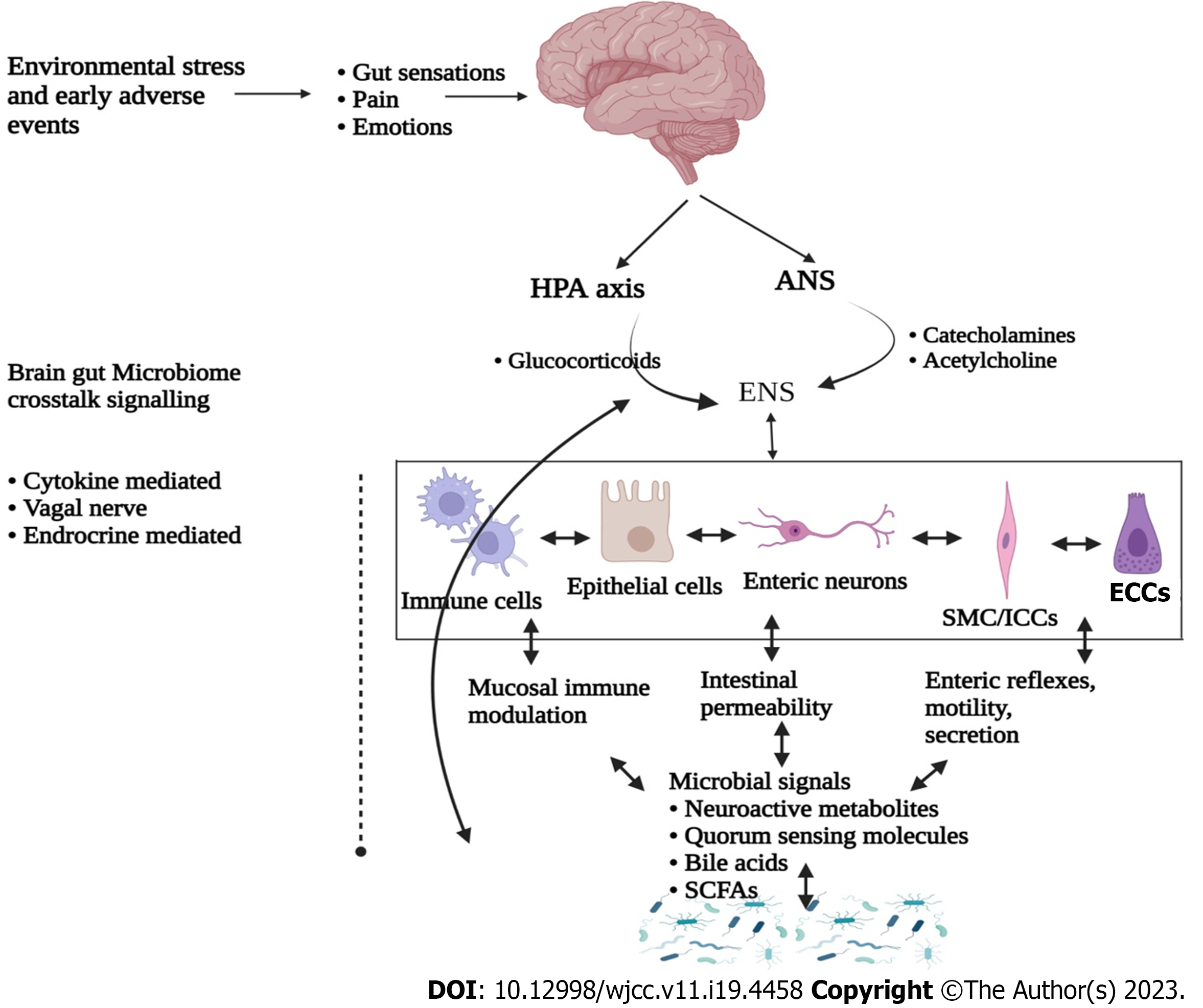Copyright
©The Author(s) 2023.
World J Clin Cases. Jul 6, 2023; 11(19): 4458-4476
Published online Jul 6, 2023. doi: 10.12998/wjcc.v11.i19.4458
Published online Jul 6, 2023. doi: 10.12998/wjcc.v11.i19.4458
Figure 1 Regulatory cross talk between gut and brain.
The central nervous system and enteric nervous system mainly communicate through vagal and autonomic pathways to control various gastrointestinal functions in a bidirectional approach. These signalling cascades are also regulated through mood and cognitive processes and significantly affected by environmental factors and early adverse events. These signalling crosstalks are significantly altered in irritative bowel syndrome (IBS) thus resulting in abnormal gastrointestinal motility, visceral hypersensitivity and bowel movements. Perturbations in the gut microbiome composition and diversity through various sources alter this cross talk, thus resulting in interceptive feedback to brain and causing functional and neuroplastic changes. Microbial metabolites released from various microbial populations have critical role in these crosstalks, thus having therapeutic values for the management of IBS. ANS: Autonomic nervous system; HPA: Hypothalamic-pituitary-adrenal axis; ECC: Enterochromaffin cells; ICC: Interstitial cells of Cajal; SMC: Smooth muscle cells; SCFAs: Short chain fatty acids; ENS: Enteric nervous system.
- Citation: Singh SV, Ganguly R, Jaiswal K, Yadav AK, Kumar R, Pandey AK. Molecular signalling during cross talk between gut brain axis regulation and progression of irritable bowel syndrome: A comprehensive review. World J Clin Cases 2023; 11(19): 4458-4476
- URL: https://www.wjgnet.com/2307-8960/full/v11/i19/4458.htm
- DOI: https://dx.doi.org/10.12998/wjcc.v11.i19.4458









